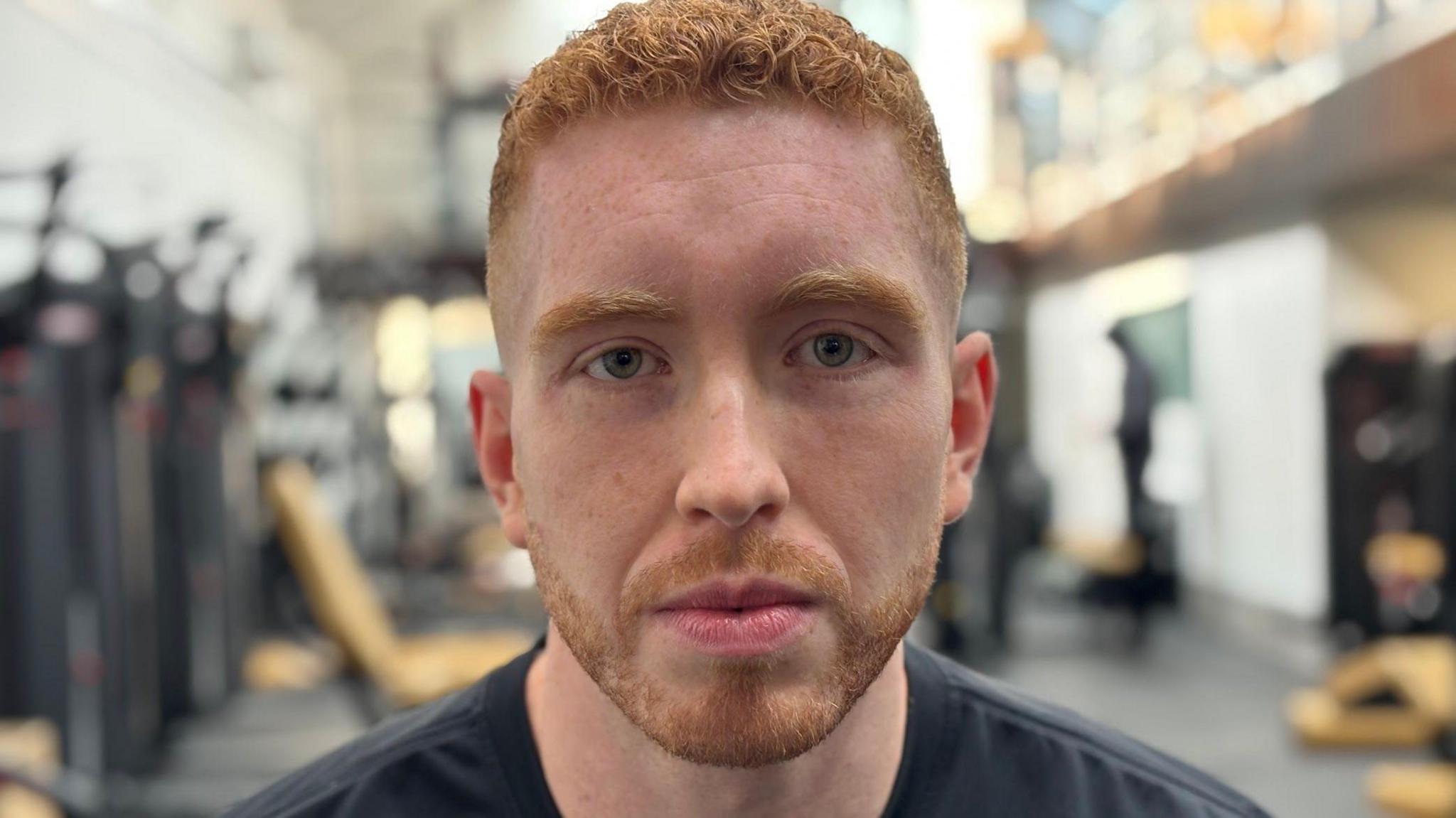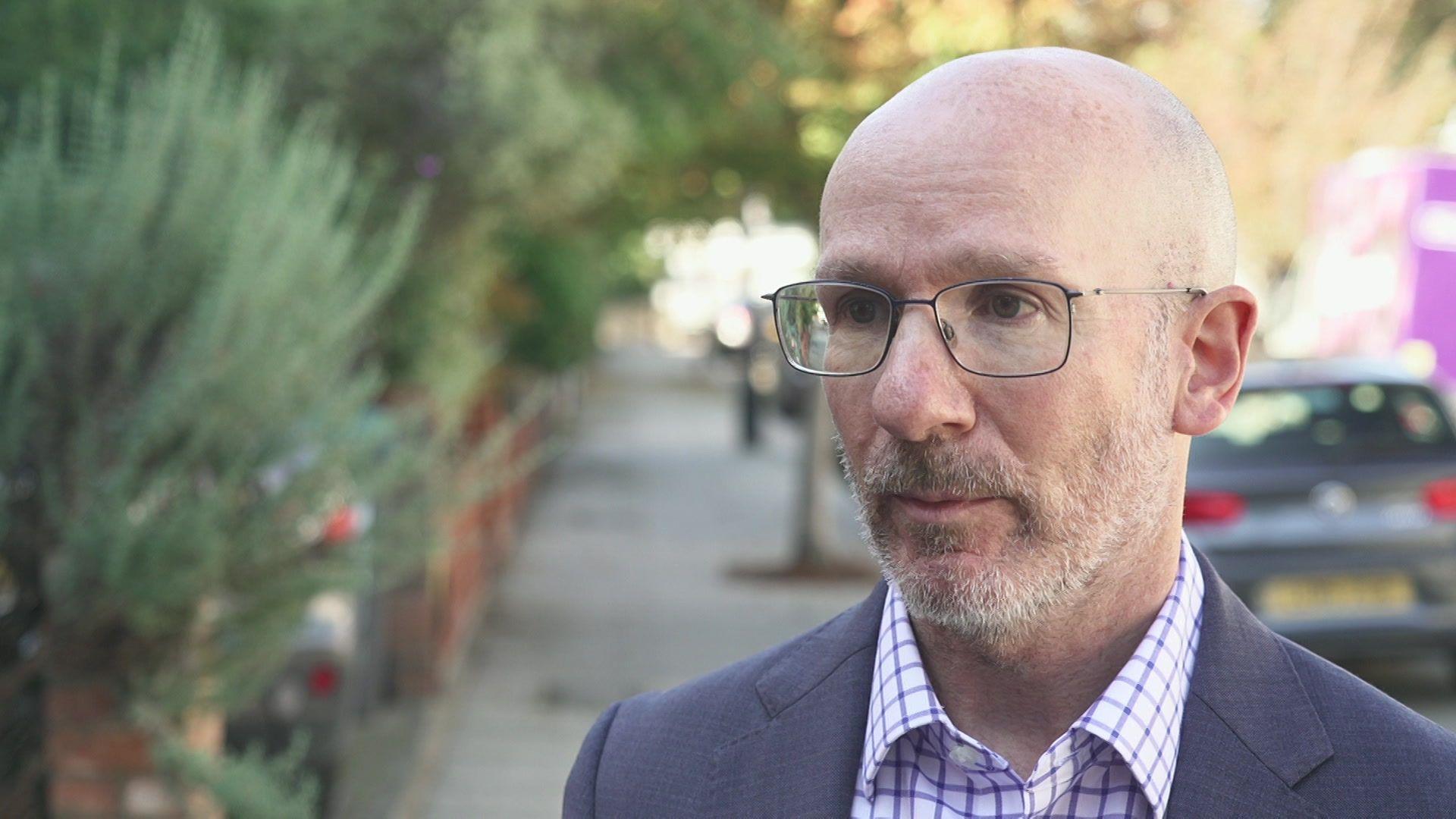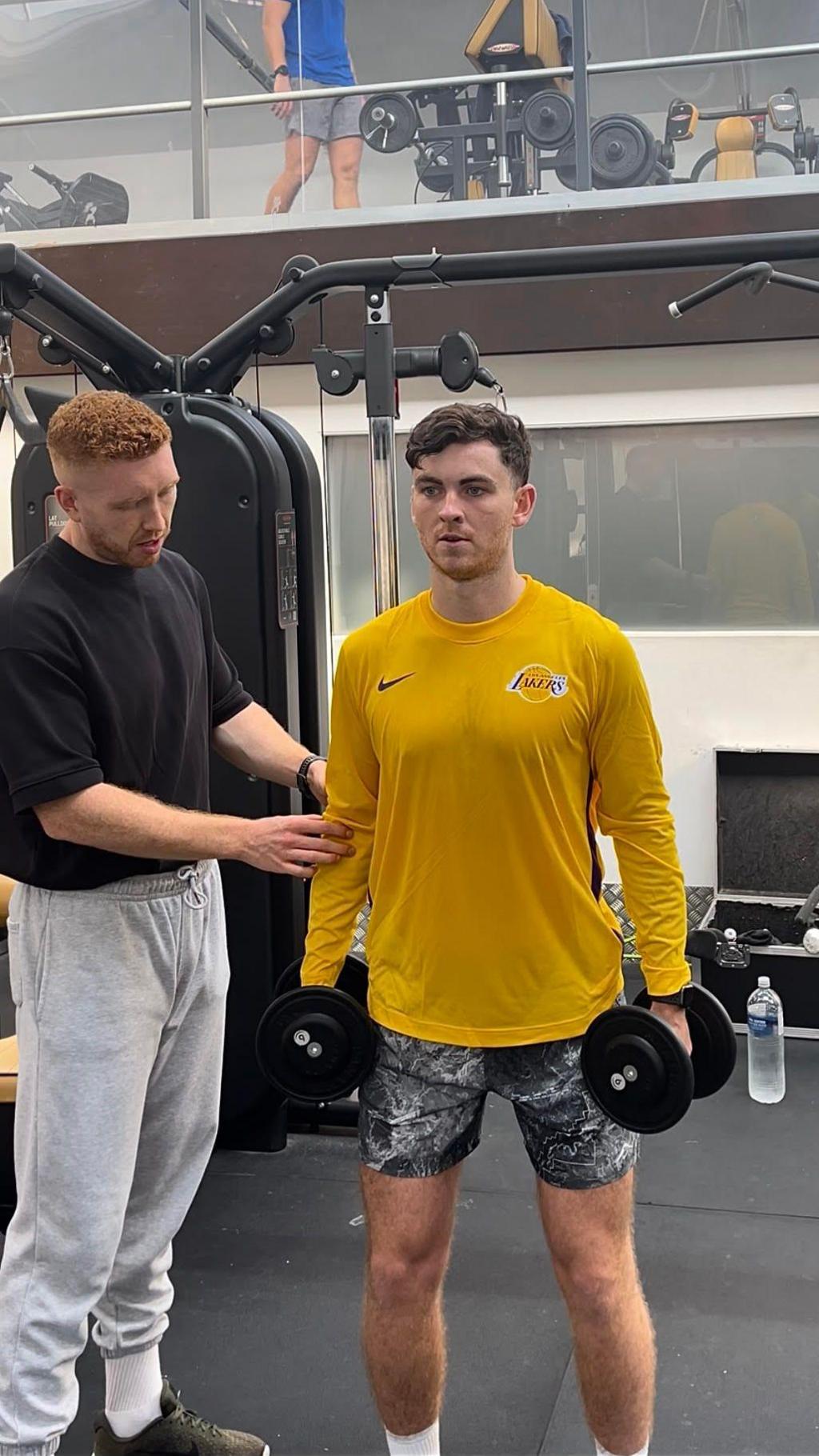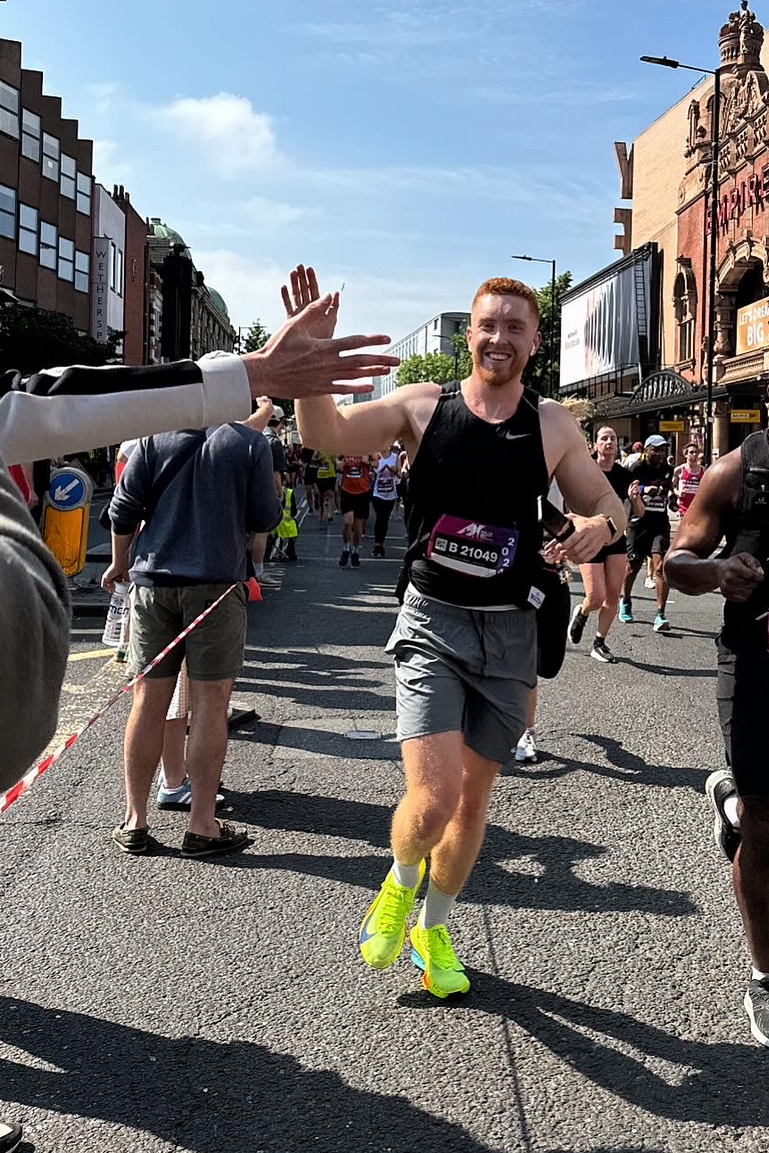'Daily migraines forced me out of my job'

Sean O'Hara has had migraine symptoms every day for 10 years
- Published
A man from north London has said he felt forced to leave his job due to daily migraines he's had over the past decade.
Sean O'Hara, 27, describes his symptoms as "a constant thumping ache" across his head, combined with intermittent intense pain down his neck or around his eyes.
He said his employer was sympathetic but that, with the pain sometimes leaving him unable to fulfil his role working at a gym, he felt he had to go - a decision accepted by his former employer.
The Migraine Trust said people with the condition can face discrimination at work and a loss of career opportunities.
An estimated 1 in 7 people are affected by migraine attacks. The condition is recognised as a complex and potentially debilitating neurological disorder.
There are various triggers and symptoms, including intense headaches, sensitivity to light, visual disturbances, nausea and vomiting.
Treatments can vary in their effectiveness and there is still no known cure.

Sean says he would often sit in pain during his shifts at work
Sean described migraines as "an invisible condition" which is often not taken seriously.
"Looking at me, no-one could tell I was experiencing a migraine attack," he said.
"The foundational pain is like a rope being constantly tightened across the front of my head and a constant thumping pain across the whole of my head.
"And then, in and out every day, I get different intense symptoms - above one eye, or down my neck, or right in between my eyes."
He said sometimes the pain would intensify suddenly during his shift working at the gym.
"What are you supposed to do? Walk out halfway through your shift? You can't do that. You have people to train, clients to meet."
His employer showed some understanding of the condition.
"They were really good about it. But it always comes to that point.
"You now need to do your job and, if you can't do your job, we understand your condition but we need someone who can do it."
Sean felt he had no choice but to leave voluntarily as he could not keep up with the shift patterns and hours as it impacted on his health.

The Migraine Trust CEO says employers can make adjustments that "aren't rocket science"
Research by The Migraine Trust found that 60% of people would feel concerned about hiring someone who suffered migraines.
The charity's survey also found that 91% of people who get migraines had worked while experiencing migraine symptoms, with many using annual or unpaid leave to avoid taking sick days.
The charity's chief executive Rob Music said: "People living with migraine have told us they are discriminated against, lack promotional opportunities, that they often have to go from full-time to part-time, or actually give up their job altogether because of the way they're treated at work."

Sean is now a self-employed personal trainer and can work around his migraines
What are your rights?
The Migraine Trust says reasonable adjustments by employers could include:
flexible working patterns
allowing working from home, if this helps and is possible
fixing lighting, noise and ventilation issues
equipment that may help, such as anti-glare screens
access to drinking water.

Sean is doing the London Marathon again in April, this time for The Migraine Trust
Rob also pointed out that people are protected by employment law and that there were things that workers and managers could do.
"It's very much down to each individual case," he said.
"Employers should make simple, reasonable adjustments, such as allowing flexible working, looking at office lighting, moving a desk away from bright light, and providing a quiet room where staff can go when experiencing migraine symptoms."
NHS migraine clinic 'revolutionary' for patients
- Published18 September
Migraines more than 'just a headache'
- Published24 September 2024
'Controversial brain surgery stopped my migraines'
- Published4 December 2024
Sean said he sympathised with how small businesses are affected by staff getting sudden, debilitating migraines.
He is now a self-employed personal trainer. It allows him to manage his own hours, which works better around his migraines.
He is also training to run the London Marathon next year in support of The Migraine Trust to help raise awareness of the condition.

Sean hopes his marathon-running will raise migraine awareness
Tina McKenzie, policy chair at the Federation of Small Businesses, said: "Small businesses are more likely to employ people with long-term health conditions - and can often be more flexible, perhaps agreeing adjusted working arrangements and providing specialised equipment where needed."
She added that the government could help by introducing a permanent Statutory Sick Pay (SSP) rebate for small to medium businesses, so they can reclaim costs for long-term periods of sickness absence.
"The provisions related to SSP in the Employment Rights Bill will, according to the government's own impact assessment, increase the cost for small and micro businesses by almost two-thirds."
A government spokesperson said: "Strengthening Statutory Sick Pay is part our Plan to Make Work Pay, ensuring that the safety net of sick pay is available to employers and workers who need it most."
Listen to the best of BBC Radio London on Sounds and follow BBC London on Facebook, external, X, external and Instagram, external. Send your story ideas to hello.bbclondon@bbc.co.uk, external